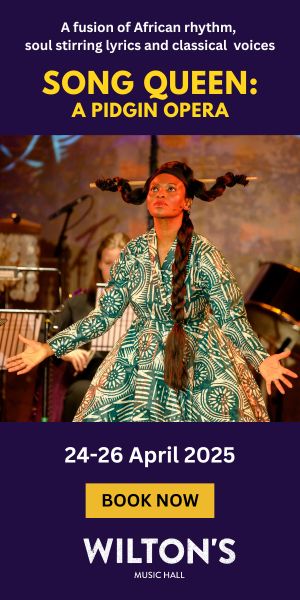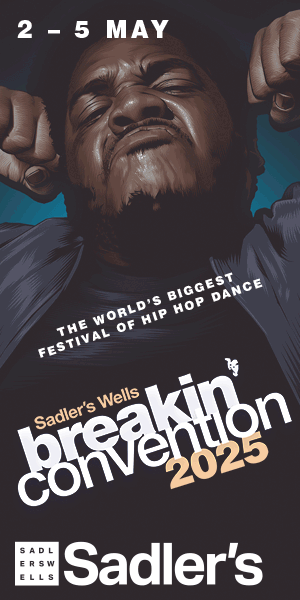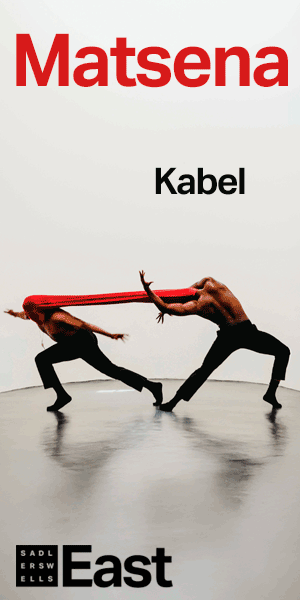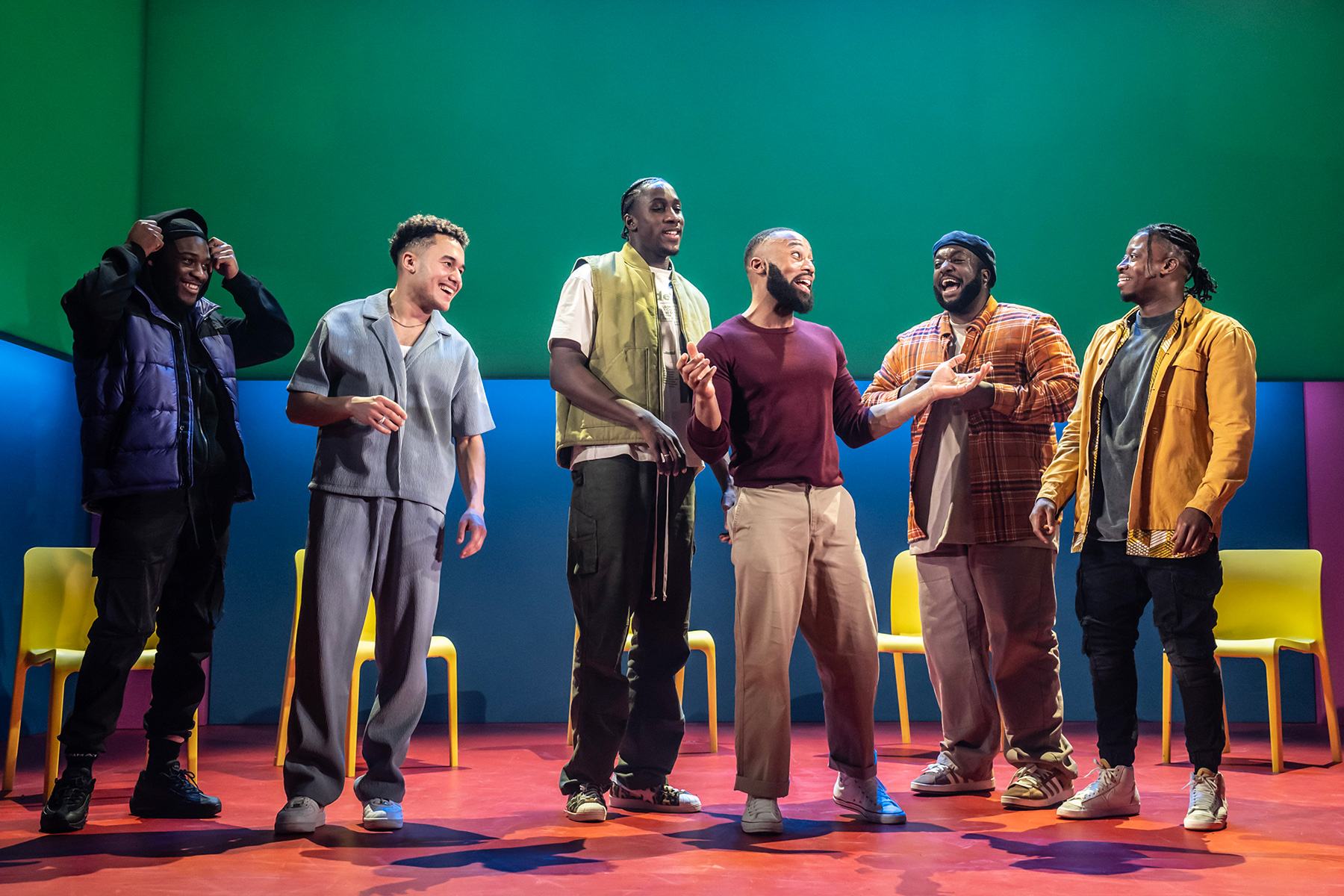
Ryan Calais Cameron’s For Black Boys is concerned with the visibility of black boys. We meet the young men at their group therapy session, which serves to highlight a range of issues impacting their mental health. The choreopoem bounces from one character’s story to the next, without order, allowing the violence of structural racism to ricochet dizzyingly across their collective experiences as black boys specifically in Britain.
The production is a stunning achievement of wit, acuity and heart. Never weighed down by the seminal work which inspired it, Ntozake Shange’s For Colored Girls Who Have Considered Suicide/When the Rainbow Is Enuf, it builds on it, it soars and its potential is limitless.
What I loved most is that it demands that black boys are seen through a black lens, and there is a purpose to it. It’s evident in the choices Calais Cameron makes in the intimacy of our vernacular, the diction dancing from Jamaican patois to Nigerian shade. Our experiences and joy are centred in the movements he chooses; the rhythm, the swagger, the freedom. Of course, there is call and response, the boys sing to us and we sing back to them. The effect is to facilitate an element of co-creation between the black boys and their black audience. I found something empowering in that convergence. We, the community that raises them, is asked to hold this space and actively participate in their healing.
“So compelling is the brotherhood they build across two hours, it feels wrong to single out any one performer. They are all, unreservedly, brilliant”.
With sound design and composition by Nicola T. Chang and musical direction & vocal arrangement by John Pfumojena, music plays a huge part in this. Sometimes, it’s a natural extension of the dialogue; the celebration of Obsidian’s Ghanaian girlfriend’s complexion melts into India Arie’s Brown Skin. It brings the laughs; Az Yet’s cringe-inducing lyrics from Last Night are sung with the earnest solemnity of a black Baptist sermon.
It gives space and shape to the boisterous energy of these dynamic, very present young bodies, adding a lyrical structure to their physicality that could otherwise descend into slapstick. At its most effective, it merges pop-culture moments that have occupied black conversation with the boys’ dialogue in the group – a harrowing recounting of child sex abuse is told to a cover of Ron Isley’s At Your Best by, of course, Aaliyah. The survivor, Midnight, cries, “All her voice does is remind me of a time when death laid over me.” It’s powerfully done and smart AF.
Music is but one part of the myriad black art forms brought together to weave a rich synesthesiastic experience. It draws on the tradition of African communities blending numerous elements to create a specific performance: music, dance, hair-craft, fashion, and oratory. The showcase of this textured artistry recognises how black culture has always been popular culture, the centre of human imagination and expression in the modern age, and that boys (alongside girls) just like this build it. And yet they are pushed to the margins, misunderstood, miseducated, while their art misappropriated.
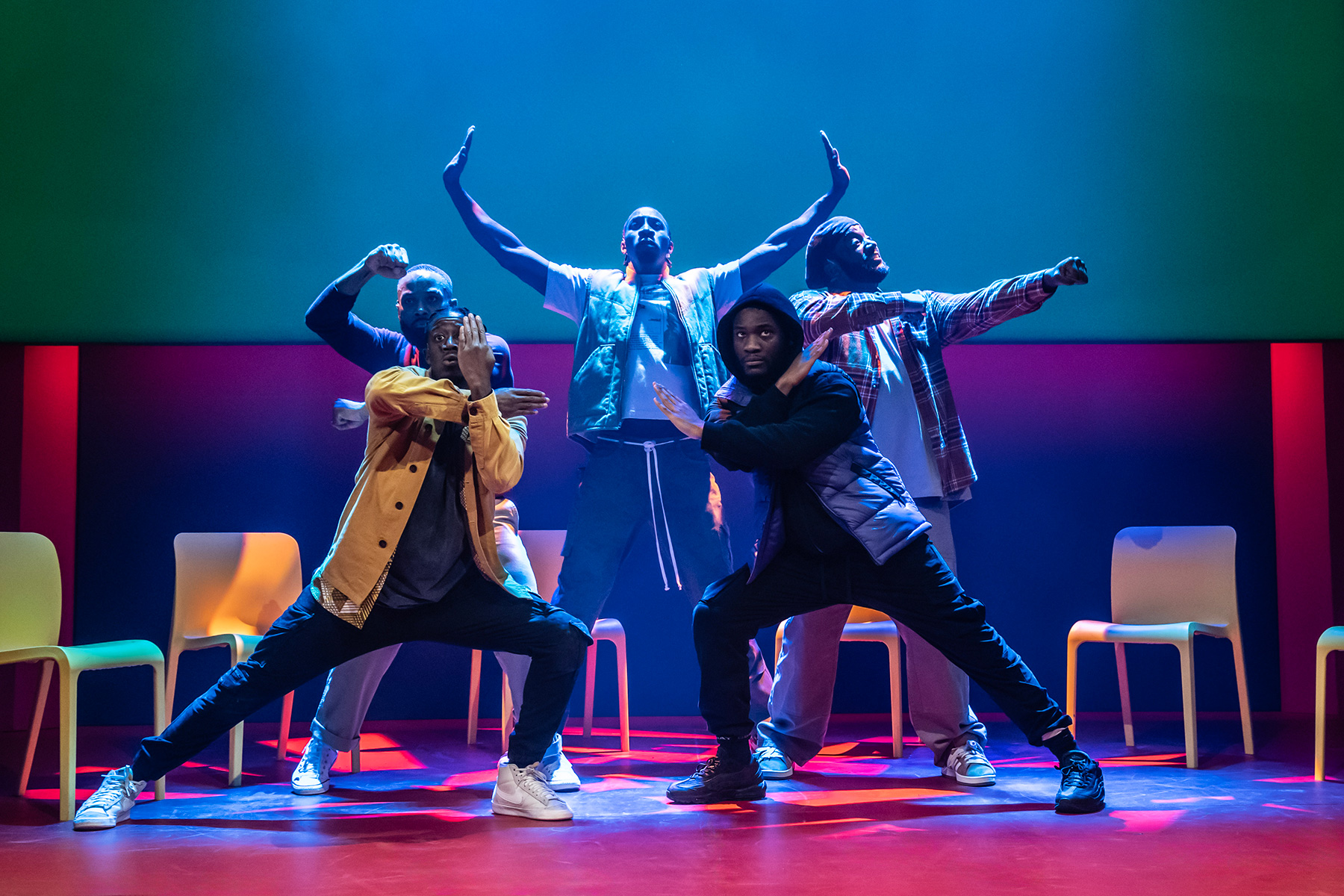
There is a powerful reclamation of the mainstream at work here, reinforcing the arc of belonging that recurs throughout. Calais Cameron draws on our ancestry to explore that further – the urge to extend our black hands into the past in search of mighty kings, to reach into our present in search of worthy kings in the men we call father, is considered and critiqued. The subject matter is ever weighty, balanced skilfully with buckets of natural humour while preserving the integrity that is required to navigate these topics with sometimes violent honesty.
None of this would be possible without the superb performances of these black boys. So compelling is the brotherhood they build across two hours, it feels wrong to single out any one performer. They are all, unreservedly, brilliant. Mohammed Mansaray brought intelligence, light and gravitas to every scene. Onyx’s descent from childhood vulnerability to adolescent violence was the highlight of the production for me.
Tobi King Bakare is so good as both narrator and subject that you cannot tell whether he gives his account as a dispassionate storyteller or a disassociated survivor. And then, suddenly but inevitably, an explosion of dismay, anguish and brutality bursts from his frame. He is all we fear for our black boys, finding the belonging that has been denied him at home in the sublimating company of ‘man-dem’. Joined by faceless boys straddling a battle line across the stage, they perform a corrupted, krumpy haka, hollowed-out of any meaning as the lights glow a hellish red. “A child that is not raised by the village will burn it down just to feel its warmth” they cry. And so did I.
Last week, African-American playwright Jeremy O. Harris created the type of storm that we love on this little island, that which resides in a teacup. He announced he would be hosting Black Out nights (inviting primarily black theatregoers who do not feel they belong in the theatre) for the West End debut of his multi-award-winning Broadway Slave Play. On Thursday, as I entered the Garrick Theatre to watch For Black Boys Who Have Considered Suicide When the Hue Gets Too Heavy, Ryan Calais Cameron’s play, the foyer was a flood of beautiful black faces. Perhaps O. Harris’ central hypothesis was flawed? Black people were showing up and showing out in the heart of Theatreland.
O’Harris describes his Black Out nights as ‘radical invitations’ to facilitate black people’s belonging in the theatre. I would take it further: both he and Calais Cameron offer us the chance to participate in radical love; that which transforms pain into healing through community.
Since leaving the Garrick last night, I have had the bridge of Snoop Dogg’s Beautiful ringing in my ears. ‘I just want you, to know that you are reaaaaally special, oh my, oh my, oh my, oh my.’ These are the words the boys sing to their traumatised brother to heal him; this is how they express their love. In ten years, my own beautiful black boy will be 13.
I have no doubt For Black Boys will still be playing, and I cannot wait to take him. I cannot wait for him to hear how special he is from an unsolicited Snoop loop, to have the medley of his identities acknowledged, and for each one of them to be in receipt of the radical love that is only possible when black people commune in this way. That is the promise, the purpose and the power of this singular work. Go, now.
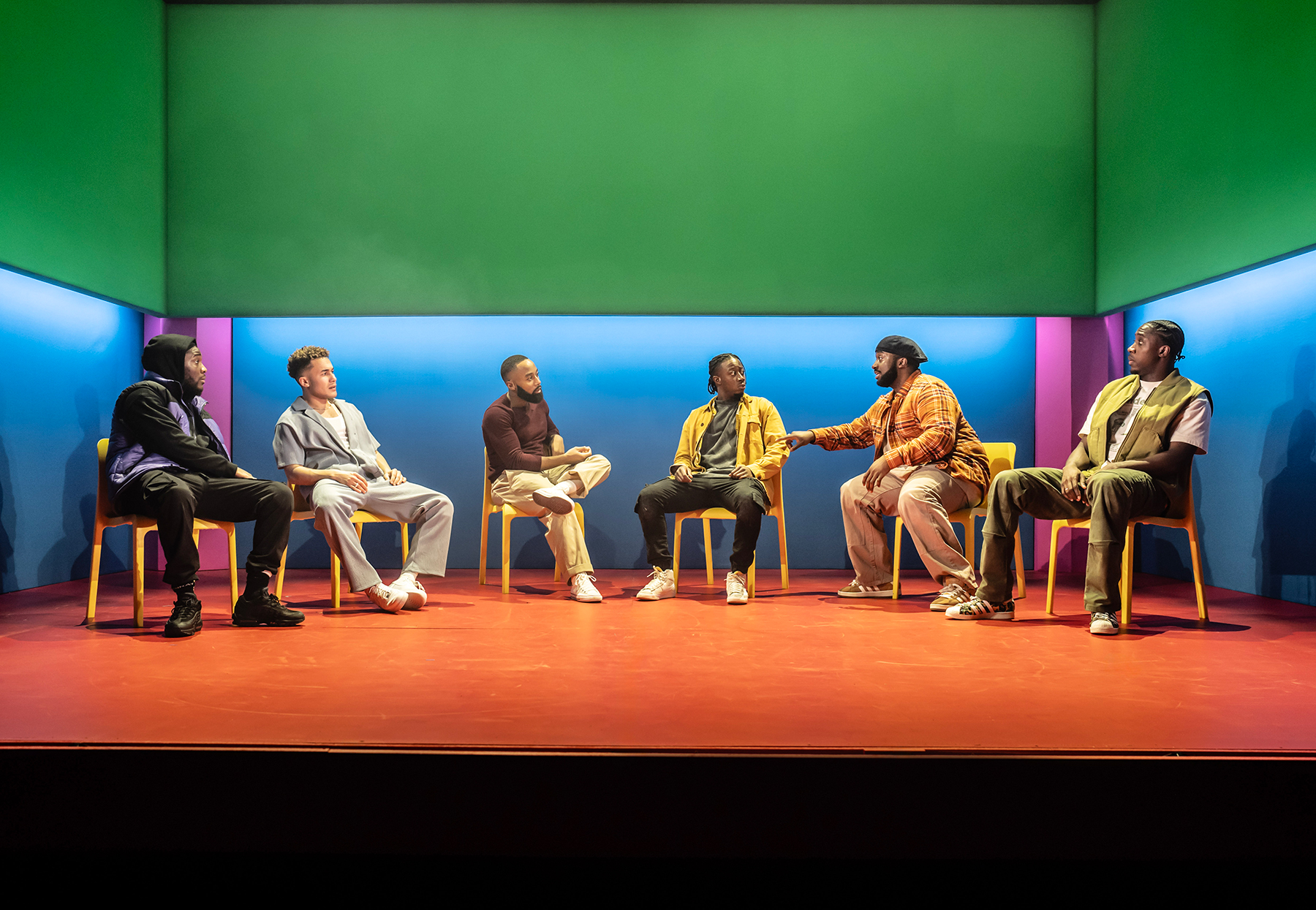
Need to know: For Black Boys Who Have Considered Suicide When the Hue Gets Too Heavy plays at the Garrick Theatre until 1 June 2024
Related links
Read our 2023 Apollo Theatre review of For Black Boys…
Read our 2022 Royal Court Theatre review of For Black Boys…
Read our 2021 New Diorama review of For Black Boys…
Interview with Ryan Calais Cameron (Writer) and Tristan Fynn-Aiduenu (Director)
Afridiziak x Dope theatre meet up pic – For Black Boys, May 2023



























